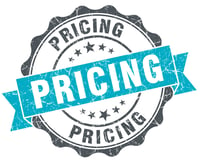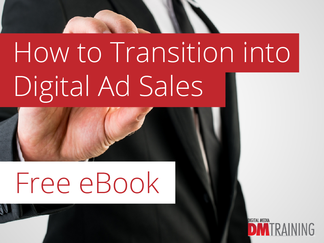How To Sell Online Display Advertising
Selling online display advertising may come as a challenge for those that have only previously sold traditional advertising since the industry is constantly changing. In order to become proficient at discussing and effectively selling digital advertising, you need to follow your "knows."
Here are the 7 things you need to know about selling display advertising:
1. Know the Properties
First and foremost, you must understand what you’re selling. Do you check the site that you’re selling daily? Do you know the various sites that comprise the network you’re offering?
If you don't understand the context of the sites, you can't expect to sell it effectively or be able to convey the value to advertisers about why they should buy with you and not with someone else.
2. Know the Targeting Possibilities

How can you help advertisers target the users who visit your site(s)?
You may be able to give advertisers the option of targeting their messages to users who have context-specific interests that connect to a certain channel within a website or a group of sites. Is your demographic in line with who they’re trying to reach?
You might also be able to offer behavioral targeting (targeting based on past click history) or retargeting, which means focusing on people who have visited a certain site or pursued a certain offer in the past, who have made a purchase, or abandoned the site during the conversion process.
Knowing exactly what targeting opportunities you can offer the advertiser will help them see a more natural fit for their investment with you. Offering success stories of previous campaigns will also allow the buyer to envision the ROI of advertising on your properties.
3. Know the Ad Units
Which ad units do you support? Which size? Do you run video? Rich media? If so, which formats?
Although your company may only accept certain formats, you should apprise yourself on all the formats available. The IAB (Interactive Advertising Bureau) should be your main resource for learning about advertising units, as well as, various standards and guidelines for digital advertising.
4. Know What Can and Can't Be Done
Once you sell inventory to an advertiser, you’ll essentially be handing off the account to the account management or ad ops team.
The advertiser has certain expectations about what’s going to happen, how often it is going to happen, and how quickly the campaign as a whole is going to achieve success.
It’s your job to make sure that those client expectations are realistic and will be met, especially as the campaign moves through the process to the team that will be managing all the details. If you’re not sure about whether something can be done, make sure to ask someone on the team instead of immediately promising your client that it’s “no problem”.
Maintaining great relationships internally and externally with clients will be the only way to keep the process as seamless as possible.
 5. Know the Pricing
5. Know the Pricing
There are three popular pricing formats in digital advertising.
- CPM (Cost per Thousand): The advertiser pays a set fee for the serving of 1,000 ad "impressions" regardless of whether anyone clicks on them or not.
- CPC (Cost per Click): The advertiser only pays when someone clicks on an ad.
- CPA (Cost per Action or Cost per Acquisition of a new customer/conversion; if the conversion is a lead, then this pricing is sometimes referred to as CPL - Cost per Lead): The advertiser only pays when the click results in a conversion.
You need to be able to eloquently discuss the pros and cons of each model, as well as, overcome objections related to any of the costs being too high.
6. Know Who You’re Calling
This isn’t something that’s unique to selling display advertising, however, you should expect to do additional research on any prospect in order to be able to position your offering to its fullest.
Knowing what the advertiser has done in the past and having success stories ready that will appeal to that specific buyer, is extremely important in order to be able to articulate your offering in such a way that’s in line with what the advertiser’s goals are.
7. Know What To Say and Ask
When you’re in a discussion with a buyer, it’s crucial to conduct a thorough needs assessment in order to formulate a proposal and campaign that will be successful.
Make sure to ask these questions:
- Who are you trying to reach?
- What are you trying to accomplish?
- How will you measure success?
As you consider their answers, think about the first 5 "knows" above.
Are they trying to reach a target that is possible given your properties and targeting? Can you support their advertising goals with the ad units you offer? Will your team be able to reach these goals? Can you boil their goals down into clearly defined metrics?
Selling digital advertising isn’t an easy task because the environment is continuously changing and there is so much competition, so keep updating yourself on the latest that your company, as well as, the industry offers. If you’re able to speak confidently about digital and truly relate to an advertiser’s goals, you’ll be in a great position to sell more successfully.
About Steve Bookbinder
Steve Bookbinder is the CEO and sales expert at DMTraining. He has delivered more than 5,000 workshops and speeches to clients all over the world and has trained, coached, and managed more than 50,000 salespeople and managers. Steve continuously refreshes his training content to reflect his latest first-hand observations of salespeople across industries and regions. Through him, participants in his workshops and coaching sessions learn the best practices of today’s most successful sellers and managers across industries. Steve understands that sales is a competitive game. To outperform competitors and our own personal best results, we need to out-prospect, out-qualify, out-present and out-negotiate everyone else, not merely know how to sell. Through his specialty programs in Pipeline Management, Personal Marketing, Great First Meetings, 2nd-level Questioning, Sales Negotiating, and Sales Coaching, Steve trains sales teams to master the skills they need to overcome the challenges they face in today’s world… and keep improving results year over year.





